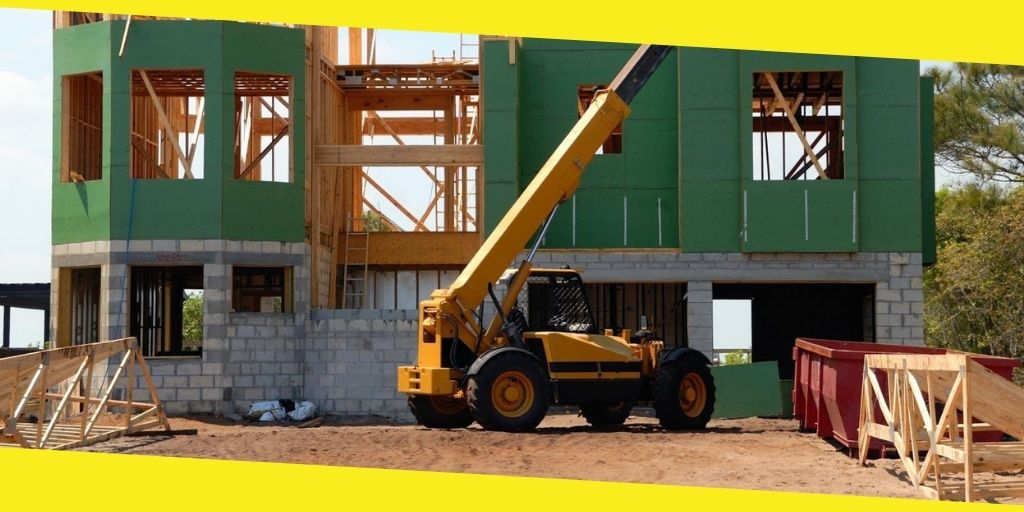8 Steps for Starting a Construction Business
Many people turn their hobbies into successful businesses. If you are skilled at construction or find yourself taking on construction work as a side gig, you may be considering using your experience to start your own construction company.

There are a number of steps you should take to save time and money when starting a business. Planning and organization increase your chances of success in a competitive market. If you prepare properly, you will be well on your way to building a successful construction company.
Contents
Toggle1. Business Planning
Every successful business starts with a robust business plan, and there are specific factors you’ll want to consider when putting together a business plan for your construction company. Putting your future company’s fundamentals on paper will help you understand what will be needed to achieve it. Your plan should include:
- Company Description– Explain the unique characteristics of your business, with a brief presentation of your experience in the area. List the services your company will provide and their prices.
- Market/Competition Study– Analyze the market in your city or region and identify your main competitors. Create strategies to compete with these companies.
- Initial Investment– After analyzing the market, you will be able to make more realistic projections of the funds you’ll need to get your company off the ground.
- Market Strategies– Define the strategies that your company will use to attract and retain customers. Think about competitive prices, advertising investment, and so on.
2. Legal Logistics
With your business plan in hand, it’s time to think about all the rules, licenses, and records needed to open your company. Be sure to familiarize yourself with the specific state and municipal laws affecting your company. They may have varying or additional requirements, but here are the basics you’ll likely need:
- Company Registration– Choose a name for your business and decide how you want to structure it—for your construction company, considering registering as a limited liability company (LLC) or a corporation.
- Tax Identification– Your employer identification number (EIN) is your federal tax identification number. You will need it to pay your company’s taxes, hire employees, and open a bank account, among other things. You can register for this number on the IRS website.
- State and Federal Licenses– The two main licenses required to start building are the general contractors’ license and the specialty contractors’ license (which you’ll need if you also provide services such as carpentry and painting). Be sure to look into your state and local regulations regarding other licenses and permits you may need.
3. Setting Up Shop
When it comes to the physical business space, some choose to start working from home, while others look for an office. Consider factors like location (don’t set up shop too far from your potential customers), space requirements (remember that you will need to store tools and equipment), and costs compared to projected profits.
Loans can be very useful if you decide to rent or buy a space for your future construction company. The U.S. Small Business Administration has several low-interest loans to help small business owners.
4. Purchasing the Right Insurance
On any construction site, injuries to employees, damage to third-party property, and potential lawsuits are possible. The best way to reduce the impact of such situations is to have proper insurance coverage in the following area:
- Workers’ Compensation Insurance– Most states require some form of workers’ comp to help with medical bills and lost wages in the event of work-related injuries. Check your state’s laws for more specific details.
- Commercial General Liability Insurance (CGL)– General liability insurance for contractors covers third-party personal injuries and third-party property damage caused by your company, including employees and covered contractors. However, keep in mind that CGL doesn’t cover damages caused by professional negligence.
- Commercial Auto Insurance– A small construction company doesn’t usually start with a large fleet of vehicles. Even so, any vehicles you do use need sufficient coverage. Commercial auto insurance can cover vehicles you own, as well as those being leased by your contractors.
- Professional Liability Insurance– This insurance helps cover errors that don’t cause personal injury or property damage but still have financial implications on a project. For example, it would cover a faulty engineering calculation or a modification that negatively impacts the quality of the work.
5. Purchasing Equipment
Even a small construction company needs tools and equipment that are in good condition. Start by taking inventory of what you already have and keeping up routine maintenance to ensure everything is in working order. Make sure you have the basics.
If you need a lot of new equipment, analyze costs and consider how you will finance renting or purchasing expensive tools or machinery.
6. Establishing Suppliers and Vendors
Starting a business requires effective networking and even some diplomacy. A good relationship with your suppliers can guarantee lower costs and better-quality products. Get quotes from multiple suppliers before deciding which ones to work with, and maintain professional relationships characterized by honesty and trust.
7. Hiring Employees and Contractors
Employing contractors gives you more flexibility as a business owner. It may also save money, as you will never be left with workers to pay despite an empty schedule.
Whichever route you choose, be sure you’re classifying your workers correctly. Incorrectly classifying employees as contract workers can prevent them from receiving proper compensation and benefits and land you in legal hot water.
Having employees ensures a lasting relationship in which both parties learn. You can also strike a balance by retaining at least a few full-time workers and using contractors as needed.
8. Your First Project Bids
Project bids are part of the process in the construction industry, and you will need a winning bid to beat the competition. Winning a project doesn’t just mean lowering the price, however. You need to declare a viable budget, or surprise costs can get out of hand later.
Although each bid is unique, always aim for a clear description of the project and its costs with a realistic budget. If you’ve done similar projects before, analyze what went right and what went wrong with them when preparing for future work.
8. Constructing Your Future
Construction is not just about building houses or buildings. Business owners in the industry also have to learn how to build trusting relationships with employees, customers, and suppliers. Plus, they need to know how to build detailed projects and budgets how to maintain a positive image. Keeping these factors in mind as you launch your business will help you find satisfaction and success down the line.
Recommended For You
Big Data Has Remarkable Impacts On Finance Sector Today
Most Inside
Most Inside offers high-quality recommendations and valuable updates to enhance all aspects of your life, providing premium guidance and enriching experiences.




